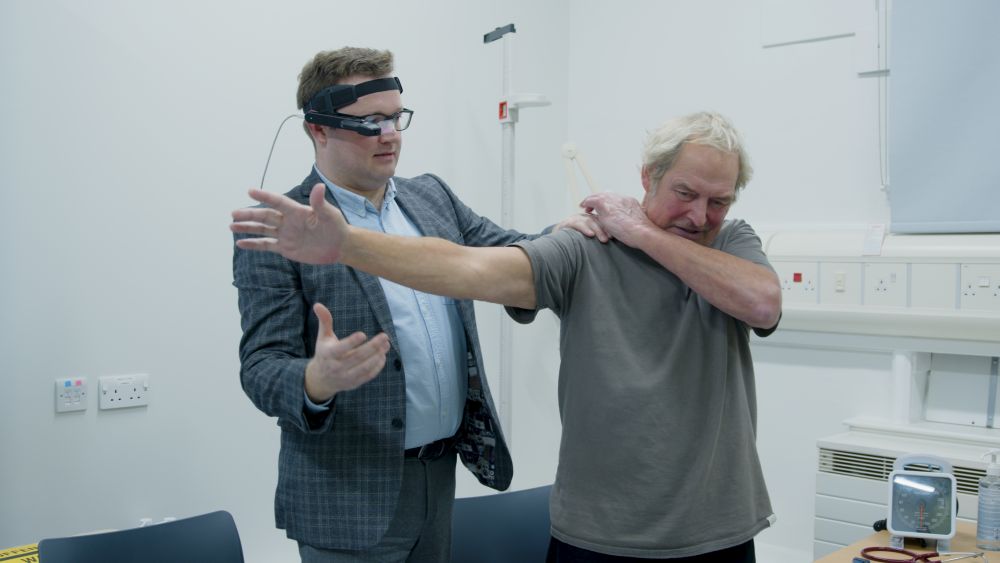
Healthcare students could receive clinical training through live-streamed consultations on the other side of the world under ambitious plans to tackle acute shortages in the global health workforce.
As part of a new partnership announced today, the University of Leeds and med-tech specialist Global Health Education Group (GHEG) are developing an online learning tool which is designed to significantly increase the accessibility, scale and quality of clinical training opportunities available to students.
Clinical training in hospitals and health practices are a necessary and integral part of medical and healthcare education worldwide.
But a shortage of such placement opportunities can create bottlenecks in health education, hindering efforts to address the estimated shortfall of 10 million healthcare workers worldwide.
This is a real breakthrough in truly borderless health education training.
The new platform developed by GHEG, in collaboration with the University, will allow larger groups of healthcare and medical students to participate in clinical placements at the same time – whatever the distance between patient and clinician on the one hand, and the students on the other.
Students can see the patient through special glasses worn by the clinician, they can hear the patient’s heart and chest sounds through the e-stethoscope and see what the clinician sees when examining the ear through an e-otoscope – as if they were carrying out the examination themselves. They can also interact with the patient and ask questions.
Watch a video about the Virtual Clinical Experiences on Youtube.
The technology, which will also expand clinical training and placement opportunities in hard-to-reach locations and settings, has been co-designed with GPs, clinical academics and researchers from Leeds’ School of Medicine, and tested with the assistance of its medical students. Phase two of a feasibility study is trialling the technology with patients.
Professor Simone Buitendijk, University of Leeds Vice-Chancellor and President, said: “This is a real breakthrough in truly borderless health education training, at scale and of very high quality. We are testing the approach and researching the effects on the quality of the education and the patient experience in the Leeds region right now.
“We will soon start working with colleges and universities in the UK and with partner universities in other countries, including in the Global South.
“The University of Leeds has a superb track record in innovation in healthcare and medical education and we are committed to playing our part in tackling health inequalities in the UK and abroad.”
Gideon Shimshon, Co-Founder and CEO of GHEG, added: “We believe that effective use of technology, alongside in-person learning and clinical practice, will be crucial in enabling millions more healthcare workers to be trained affordably and to a high standard, in turn providing millions more people with better access to healthcare and able to live longer, healthier lives.”
Lord Ara Darzi, Co-Founder and Chair of the Global Health Education Group, said: “I’m delighted that the University of Leeds is championing global health education.”
Further information
For media enquiries email University of Leeds Press Officer Kersti Mitchell at k.mitchell@leeds.ac.uk.